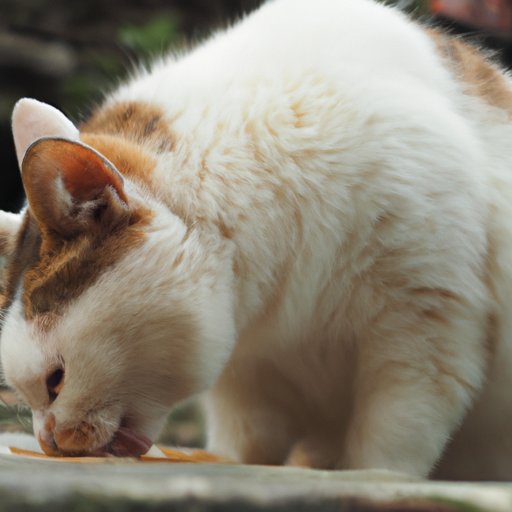
How to Get Your Cat to Gain Weight
As a cat owner, maintaining a healthy weight for your furry friend is crucial to ensure their overall well-being. Unfortunately, sometimes cats can become underweight, which can cause a host of health problems and concerns. In this article, we will explore some strategies for how to get your cat to gain weight, including nutritional needs, picky eater tips, addressing health issues, and success stories from real-life cats.
Nutritional Needs for Underweight Cats
One of the first steps in getting your cat to gain weight is ensuring they are receiving a balanced diet. This means finding food that is high in calories, but also provides the necessary nutrients. You can also look for supplements designed specifically for weight gain, which can be mixed into their food.
When it comes to feeding schedules and portion sizes, it is best to speak with your veterinarian for specific recommendations based on your cat’s needs. However, in general, you may want to consider offering smaller meals more frequently throughout the day to encourage your cat to eat more often.
Strategies for Encouraging Picky Eaters
Some cats can be notoriously picky eaters, making it even more difficult to get them to gain weight. However, there are several strategies to try that may entice them to eat more.
First, consider offering different types of food. Some cats prefer wet food over dry, for example, or may prefer a certain flavor over another. Experimentation with different textures and flavors can help encourage your cat to eat more.
Another option is to mix in wet food or treats with their regular food. This can add an extra flavor boost and make their meals more appealing.
Finally, consider using puzzles or toys during mealtime to make eating a more enjoyable experience. There are a variety of puzzle feeders on the market designed specifically for cats that can keep them entertained while they eat.
Addressing Health Issues
If your cat’s weight loss seems sudden or continues despite your best efforts to adjust their diet, it may be time to consider that there is an underlying health issue at play. Warning signs to look for include weight loss along with decreased appetite, vomiting, diarrhea, and lethargy.
If you notice any of these symptoms, it is important to seek veterinary care as soon as possible to get to the root of the problem. Your vet may recommend blood work and other diagnostic tests to determine what is causing your cat’s weight loss.
Success Stories
It can be helpful to hear success stories from other cat owners who have gone through similar struggles. One such story comes from cat owner Sarah, who had been struggling for months to get her cat, Lily, to gain weight. After trying different food types and supplements, she discovered that Lily loved to eat with a group of other cats, and started feeding her meals alongside a friend’s cat. The sense of camaraderie and competition helped motivate Lily to eat more, and she finally began to gain weight.
Conclusion
As pet owners, it is important for us to pay attention to our cat’s overall well-being, including their weight. If you have a cat that is underweight, there are several strategies to try for getting them back to a healthy weight, including exploring nutritional needs, picky eater tips, and seeking veterinary care if necessary. With the right approach, you can help make sure your cat is happy, healthy, and thriving.





